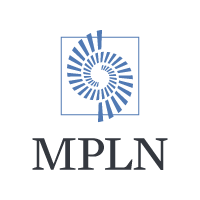Our LIS Blue is a fast, easy-to-use, secure, and accessible laboratory information system developed using the latest web technology.
Test Menu
Home » Test Menu
Solid Tumor Oncology
Anatomic Pathology
Morphology
[SPC] Surgical Pathology Consultation
[SPP] Surgical Pathology Professional
Immunohistochemistry & Special Stains
Refer to Printable IHC Test Menu for IHC Markers
Cytogenetics
[CYTO ST] Chromosome Analysis Solid Tumor
Molecular Oncology
[M COLON NGS] Colorectal Cancer NGS: BRAF, KRAS, NRAS
[M EGFR] EGFR Mutation Analysis
[M ST NGS GIST] GIST NGS: KIT, PDGFRA, BRAF
[M IDH1/2] IDH1/IDH2 Mutation Analysis
Fluorescence in situ Hybridization (FISH)
Panels
[FP BURKITT] Burkitt / “Double Hit” Large B-cell Lymphoma Panel: C-MYC, BCL2, BCL6
Probes
[FP ALK] ALK 2p23 rearrangement
[FP BCL1] IGH::BCL1 fusion t(11;14) [FP BCL2] IGH::BCL2 fusion t(14;18) [FP BCL6] BCL6 / 3q27 rearrangement
[FP CMYC] C-MYC 8q24 rearrangement
[FP EGFR] EGFR amplification 7p11.2
[FP GLI] Oligodendroglioma, 1p-,19q-
[FP HER2 HER2/neu amplification Breast Cancer
[FP HER2 GA] HER2/neu amplification Gastric Cancer [FP IGH] IGH 14q32 rearrangement
[FP IGH MYC] IGH::MYC fusion t(8;14)
[FP MALT] MALT1 18q21 rearrangement
[FP IRF4] IRF4 6p25 rearrangement
[FP ROS1] ROS1 6q22.1 rearrangement
Women's Health
STD and Infectious Disease
[CT] Chlamydia Trachomatis, Qualitative by Aptima COMBO® 2 TMA
[HPV G] Human Papillomavirus Genotyping
[HPV HR] Human Papillomavirus High Risk by Aptima HPV
[HSV] Herpes Simplex Virus Type 1 and 2 Qualitative by PCR
[NG] Neisseria Gonorrhoeae Qualitative by Aptima COMBO® 2 TMA
[TV] Trichomonas Vaginalis by Aptima
Other
Fluorescence in situ Hybridization (FISH)
[F URO] Bladder Cancer Panel (+3, +7, +17, 9p21-)
Cytogenetics
[CYTO PB] Chromosome Analysis Peripheral Blood (Constitutional)
Hematology Oncology
Anatomic Pathology
Morphology
[BMPE] Bone Marrow Pathology Evaluation
[SPC] Surgical PatholAogy Consultation
[SPP] Surgical Pathology Professional
Immunohistochemistry & Special Stains
Refer to Printable IHC Menu for IHC Markers
Cytogenetics
[CYTO BM] Chromosome Analysis Bone Marrow
[CYTO LN] Chromosome Analysis Lymphoma (Lymph Node)
[CYTO LPB] Chromosome Analysis Leukemic Peripheral Blood
Flow Cytometry
[FLOW] Flow Cytometry Leukemia / Myeloma / Lymphoma
[FLOW TC] Flow Cytometry Technical Only
[FLOW M] Flow Cytometry and Morphology
[FLOW BAL] Bronchoalveolar Lavage: CD3, CD4, CD8, CD16, CD45, CD4:CD8 ratio
[FLOW LAD] Leukocyte Adhesion Deficiency: CD11a, CD11b, CD11c, CD18
[FLOW PNH] Paroxysmal Nocturnal Hemoglobinuria – High Sensitivity: FLAER, CD14, CD24, CD59
Molecular Oncology
Next Generation Sequencing (NGS)
[M CALR] Calreticulin type 1 / type 2 Mutation Analysis
[M IgVH] IgVH Somatic Hypermutation
[M JAK2 EX12] JAK2 Exon 12 Mutation
[M MPL] MPL Exon 10 Mutation [M MYD88] MYD88 p.L265P Mutation
[M TP53] TP53 Mutation
[M TCR] T-Cell Receptor Gamma Gene Rearrangement
Fluorescence in situ Hybridization (FISH)
Hematology Panels
[F BURKITT] Burkitt / “Double Hit” Large B-cell Lymphoma: MYC, IGH::MYC, IGH::BCL2, BCL6
[F CLL] Chronic Lymphocytic Leukemia Panel: MYB (6q23), ATM (11q22.3), +12, DLEU1 (13q14.3), TP53(17p13)
[F EOS] Eosinophilia panel: FIP1L1/CHIC2/PDGFRA, 4q12 rearrangement; PDGFRB, 5q32 rearrangement; FGFR1, 8p11.2 rearrangement
[F MDS] Myelodysplasia Panel: -5/5q-, -7/7q-, +8, 20q-
[F MPD] Myeloproliferative Neoplasms Panel: +8, 13q-, 20q-, BCR::ABL1
[F MM] Plasma Cell Neoplasm Panel (performed on cells enriched for CD138+): 1p-, 1q+, +5, +9, IGH::CCND1, 13q-, +15, 17p-
[F MM REF] Plasma Cell Neoplasm Reflex Panel (performed on cells enriched for CD138+): IGH::FGFR3, IGH::MAF
Hematology Probes
[F 4Q12] FIPIL1/PDGFRA 4q12 gene rearrangement
[F 7q] Deletion 7q22 (D7S796, D7S658)/7q31.2 (D7S486)
[F AML ETO] AML1::ETO t(8;21)
[F ATM] ATM/CEP11 deletion 11q22.3
[F BCL1] IGH::BCL1 t(11;14)
[F BCL2] IGH::BCL2 t(14;18)
[F BCL6] BCL6 3q27 rearrangement
[F BCR ABL] BCR::ABL1 t(9;22)
[F CBFB] CBFB t(16;16), inv(16)
[F CMYC] C-MYC 8q24 rearrangement
[F D1314] Deletion 13q14.3
[F D20] Deletion 20q12
[F EGR1] EGR1 5q deletion, monosomy 5
[F ETV6::RUNX1] ETV6::RUNX1 t(12;21) gene fusion
[F FGFR3] IGH::FGFR3 t(4;14) [F IGH] IGH 14q32 rearrangement
[F IGH MAF] IGH::MAF t(14;16)
[F IGH MYC] IGH::MYC t(8;14)
[F IRF4] IRF4 6p25 rearrangement
[F MALT] MALT1 18q21 rearrangement
[F MECOM] MECOM 3q26 rearrangement
[F MLL] MLL (KMT2A) 11q23 Gene Rearrangement
[F MYB] MYB 6q deletion
[F NUP98] NUP98 11p15.5 rearrangement
[F P53] TP53 17p13 deletion
[F PDGFRB] PDGFRB Gene Rearrangement
[F PML RARA] PML::RARA t(15;17)
[F PRDM16] PRDM16 1p36 rearrangement
[F T12] Trisomy 12
[F T21] Trisomy 21
[F T8] Trisomy 8
Requisition Forms (PDF)
Printable Test Menus (PDF)
Customized Test Requisitions
At MPLN, we take pride in providing a wide range of services to cater to the unique needs of our clients. We understand that requirements for oncology testing, pathology, immunohistochemistry, and women’s health testing can vary greatly from one client to another. That’s why we offer a range of general requisitions that can be easily accessed by calling one of our friendly and knowledgeable Client Services Specialists.
But we don’t stop there. We also offer customized requisitions that are designed to match our client’s specific test ordering patterns. We believe that this approach ensures that every test requested is tailored to the individual needs of our clients and their patients.
If you’re interested in learning more about our customized test requisitions, we encourage you to reach out to one of our Client Services Specialists. They’ll be happy to answer any questions you may have and provide you with all the information you need to make informed decisions about your testing needs. Give us a call today at 865.380.9746.


